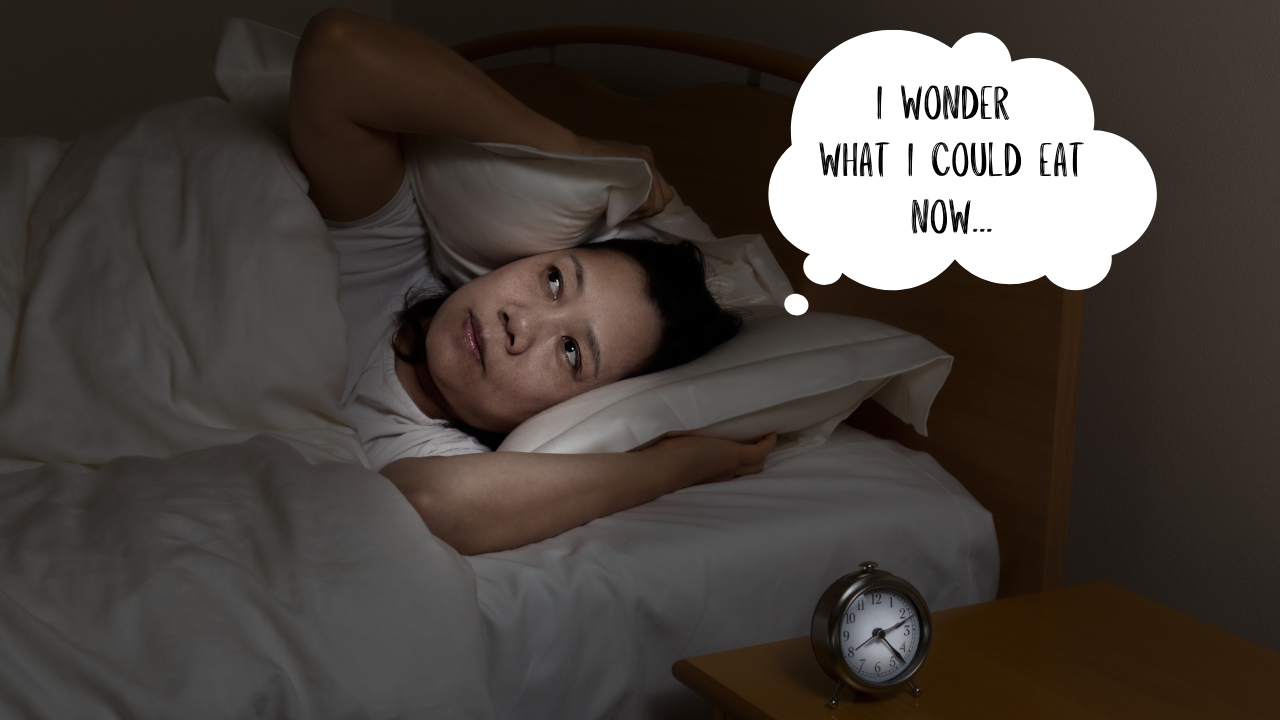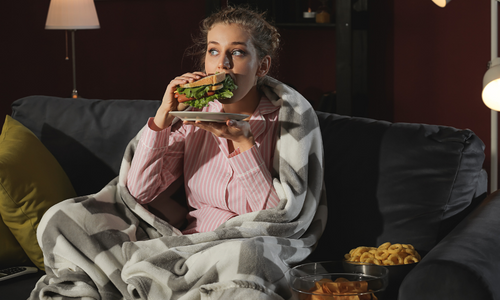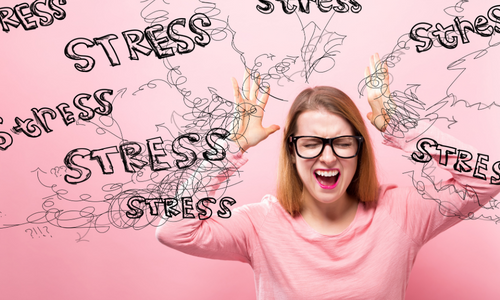The Truth About Night Eating

Issue No. 33 | Brought to you by the Addiction Reset Community – ARC
Unlocking the secrets of processed food addiction and guiding you to find freedom from food and weight obsession.

Do you struggle with uncontrollable night-time eating? Recovering food addicts often report that they may be able to get through the day sticking to their clean food meal plans but find it extremely difficult to avoid overeating at night. Some report behavior patterns of stopping at the store for processed food on their way home from work in the evenings just to stock up for nighttime bingeing. Or arranging evening deliveries of processed food despite their intention to eat a healthy dinner. Others leave their homes at night to restock food when they have run out or stay up late to eat or wake up from a sleep to finish leftovers.

If any of these behaviors resonate with you, you are not alone. This is not your fault and there is a way to gain back control.
Since researching, writing and editing the textbook, “Processed Food Addiction – Foundations, Assessment and Recovery”, Dr Joan Ifland has uncovered the key drivers of night eating and has developed appropriate strategies and tools to overcome them.
Dispelling the myths about night eating
The old advice to deal with night eating suggests restriction diets, weight loss surgery, diet pills, more exercise, more willpower, therapy for childhood issues or just “try harder”. New research shows that the real cause of night eating is processed food addiction.
Myth 1: I’m eating at night for comfort.
Truth: You may actually be eating at night to overcome the symptoms of withdrawal. Eating clean all day can lead to symptoms of withdrawal by evening, which can cause you to feel down. Eating processed food may provide temporary relief, but the cycle begins again the next day, with the same results by evening.
Myth 2: I eat at night due to stress.
Truth: Stress does not explain evening and night eating. Stress and anxiety activate processed food addiction. It’s the addiction that makes food obsession more intense. Stress causes cravings and cravings cause you to eat processed foods. Processed food aggravates the stress pathways and reduces good feelings. This is a chemical reaction in the gut and the brain, in response to eating processed foods. In a vicious cycle of addiction, this stress that is induced by eating processed food, causes further cravings to eat.

Myth 3: I eat processed food at night because I’m tired
Truth: Being tired is a trigger for processed food addiction. Being tired makes us vulnerable to increased cravings. Research shows that eating processed foods makes us feel tired and have less energy and less cognitive function. This may make it difficult to prepare real food meals at night however, eating more processed food just leads to more fatigue the next day, with more overeating at night.
Myth 4: I eat at night because I can’t sleep and get hungry
Truth: Research shows that eating processed food interrupts sleep. Inadequate sleep is a trigger that activates processed food addiction and causes cravings. Eating processed food to satisfy cravings.
The Tail of The Dog:
Dr Ifland describes night eating as “the tail of the dog”. Take care of the dog during the day, and it has a happy, wagging tail at night. Neglect the dog during the day, and the unhappy tail is low and sad. It’s the same with night. Eating. Daytime stressors and behaviors will determine your control over food at night. Management of cues and triggers throughout the day will safeguard your control over food in the evening.
Learning to recognize triggers and cues is a vital skill in addiction recovery. Throughout our day, we may be confronted by a variety of triggers that cue eating. These could include a particular time of day, certain people, social interactions, emotions, media, advertising or food cues. These cues build throughout the day and if left unmanaged, can create cravings which become progressively stronger. Avoiding, removing or managing these cues will help to avoid the cue overload that results in overeating at night. Cue management throughout the day, allows us to reset our thinking and stop craving stimulation.
In order to regain lasting control overnight eating, skills are needed to recognize, remove and manage triggers throughout your day, reset addictive thinking and restore healthy decision-making. Find a support group that understands the truth about night eating and can teach you these skills.


Within the Addiction Reset Community (ARC) our members and their journeys are important to us. We find their stories inspiring and hopeful for everybody in health recovery.
“In the first three months of Dr Ifland’s plan, I have progressed more than all the books, all the therapists, all the treatments of 30 years, the pills, the shakes, the shots, the health farms, the ashrams, and the hundreds of diet fads. I cannot unlearn what I know now.”

Many people reach out to Joan asking for advice and assistance on how they can begin their recovery journey.
Dear Joan
I have tried working with a therapist, hoping it would help me to get over “eating my feelings”. I spent lots of money on therapy sessions but still couldn’t get the emotional binge eating under control. Should I find another therapist and try again?
Joan responds:
Therapists are trained to explore childhood issues and past trauma. Exploring childhood issues does not address the addiction. In fact, the stress of revisiting childhood issues or past traumas can activate stress. Stress activates cravings and this could lead to relapse. Putting a severe food addiction into remission requires skills that will help you to manage stress and emotions, as well as to avoid triggers and cues while building new recovery behaviours that assist you with keeping your food under control.
DISCLAIMER:
Dr Joan Ifland (PhD) is a global expert on the subject of processed food addiction and is not a medical doctor. Information and response shared in this Newsletter are not intended for, and should not be construed as medical advice.

Do you have a question? Reach out to us with your questions about food addiction and recovery at gethelp@foodaddictionreset.com
Are you showing signs of Processed Food Addiction? Take this self-quiz to find out now!
Recent copies of Dr Joan Ifland's Blog:
Issue 01 | Issue 02 | Issue 03 | Issue 04 | Issue 05 | Issue 06 | Issue 07 | Issue 08 | Issue 09 | Issue 10 | Issue 11 | Issue 12 | Issue 13 | Issue 14 | Issue 15 | Issue 16 | Issue 17 | Issue 18 | Issue 19 | Issue 20 | Issue 21 | Issue 22 | Issue 23 | Issue 24 | Issue 25 | Issue 26 | Issue 27 | Issue 28 | Issue 29 | Issue 30 | Issue 31 | Issue 32

